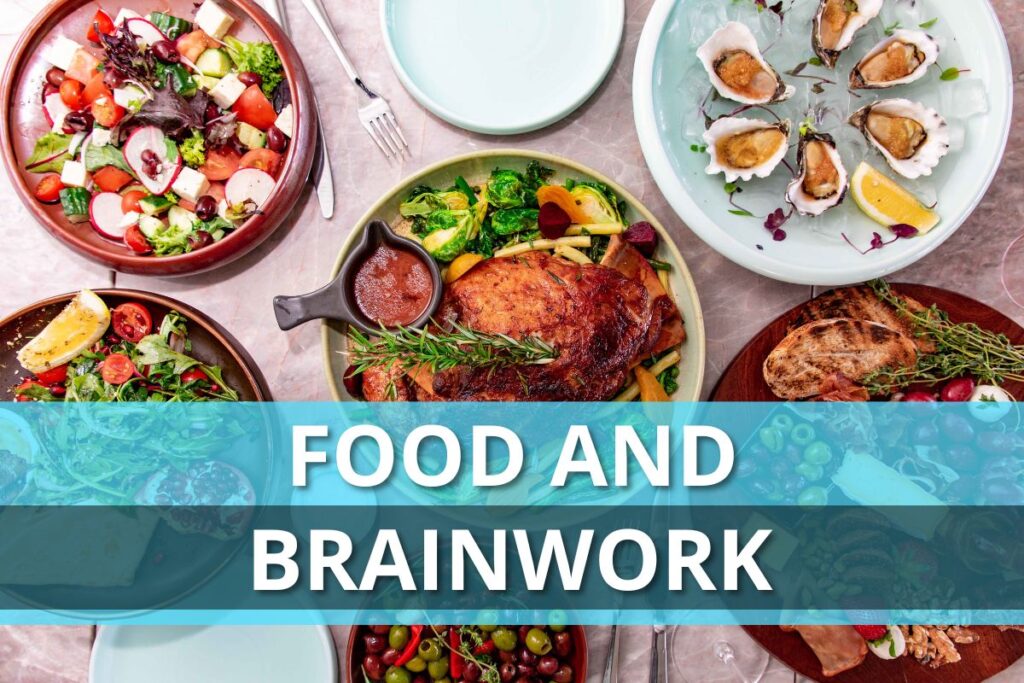Food And Brainwork
Author:
Unlock your full potential by engaging with our experts and community! Have questions about your fitness journey or looking for expert advice on weightlifting techniques? Don’t hesitate — leave a comment below and Sergii Putsov will provide a personalized answer and insights to help you reach your goals.
Torokhtiy is reader-supported. Some links are affiliate links, and we may earn a commission at no extra cost to you. See our disclosure page for details.

Balanced nutrition is the key not only to abundant energy, health and an excellent appearance, but also for the proper function of the most important organs. Taking into consideration the intensive training process, every athlete should understand what foods should be included in the diet to keep your most important organ functioning properly – the brain. The nervous system is the starting point for the processes of recovery of the body.
Of course, it’s nothing new to anyone that because the brain is so abundant in nerve cells, it is the most demanding organ you have. Because of that it needs a large amount of glucose to burn for energy. It can also exist safely on ketone compounds under certain conditions, but glucose is the primary and most important energy source. However, this does not mean that glucose should be consumed in huge quantities to ensure the work of your most important organ.
The high lipid content is a characteristic feature of the nervous system (bisphospholipid layer, myelin sheath of nerve fiber), and therefore the use of the right fats to feed this system is essential [See: Omega-3].
The whole world has already heard about glucose, but what sources have a positive effect on the work of our brain? What sources are involved in the prevention of aging neurons, violations of cognitive functions, memory and everything else? I’ll tell you now.
You may like it:
According to the American magazine Nutrition – the list is:
- Vinpocetine
- Phosphatidylserine
- Acetyl-L-carnitine
- Ginkgo Biloba
- EPA and DHA
- Phosphatidylcholine
- S-adenosylmethionine (adenosylmethionine)

Now a little bit about which foods you can find these substances in. This is important to all athletes, and not only athletes.
Vinpocetine is not contained in foods. This is a well-known chemist’s drug of synthetic origin. The basis is the extraction of alkaloid from the vinca plant.
Phosphatidylserine is already a natural fat molecule of our body, it is part of the brain’s cells, it is synthesized by the body. But we can also get it from food. Mostly it is contained in things such as: soy lecithin, Atlantic mackerel, Atlantic herring, eel, tuna, white beans, clam shell, mullet.
Acetyl-L-carnitine – the natural amino acid of our body is synthesized from two essential amino acids – methionine and lysine. Sources: mostly, products of animal origin – meat, milk, there is a little in avocado and other vegetables. Also, from synthesis of essential amino acids, such as legumes and cereals.
Ginkgo Biloba – From the adiantum tree. Both leaves and stems are used, and are rich in bioflavonoids and glycosides. The drug is sold in pharmacy markets.
Phosphatidylcholine is a component of our cell membranes. Contains choline and two molecules of fatty acid. Refers to the class of lecithins. Found mainly in peas, buckwheat, wheat, cabbage, carrots, chicken eggs (yolk), caviar, fish oil, soy.
S-adenosyl methionine is an essential amino acid methionine associated with ATP. Sources of methionine: chicken egg, rabbit, chicken, cod, cottage cheese, cheese, peas, beans, buckwheat.
All these supplements are very important for our brain. I strongly advise that you should include these in your nutrition plan. These products increase cognitive skills, and improve the performance of not only the brain, but the body as a whole.
You might be interested in:
Why Trust Us?
With over 20 years in Olympic weightlifting, strength training, nutrition coaching, and general fitness our team does its best to provide the audience with ultimate support and meet the needs and requirements of advanced athletes and professional lifters, as well as people who strive to open new opportunities and develop their physical capabilities with us.
By trusting the recommendations of our certified experts in coaching, nutrition, and sports training programming, as well as scientific consultants, and physiotherapists, we provide you with thorough, well-considered, and scientifically proven content. All the information given in the articles concerning workout programming, separate exercises, and athletic performance, in general, is based on verified data.
The product testing process is described in more detail here.
Author: Sergii Putsov
Head of Sport Science, PhD
Best Results: Snatch – 165 kg,
C&J – 200 kg
Sergii Putsov, Ph.D., is a former professional weightlifter and National team member, achieving multiple medals in the 94 kg weight category at national competitions. With a Master’s degree in “Olympic & Professional Sport Training” and a Sport Science Ph.D. from the International Olympic Academy, Greece, Sergii now leads as the Head of Sport Science. He specializes in designing training programs, writing insightful blog articles, providing live commentary at international weightlifting events, and conducting educational seminars worldwide alongside Olympic weightlifting expert Oleksiy Torokhtiy.




Still have questions after reading our article? Unlock your full potential by engaging with our experts and community! Don’t hesitate — leave a comment below and Sergii Putsov will provide a personalized answer and insights to help you reach your goals.